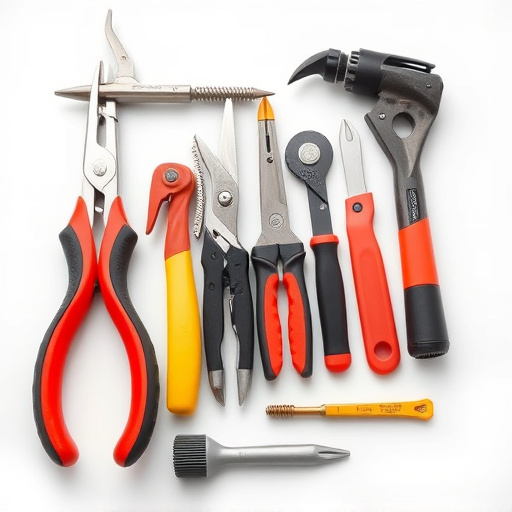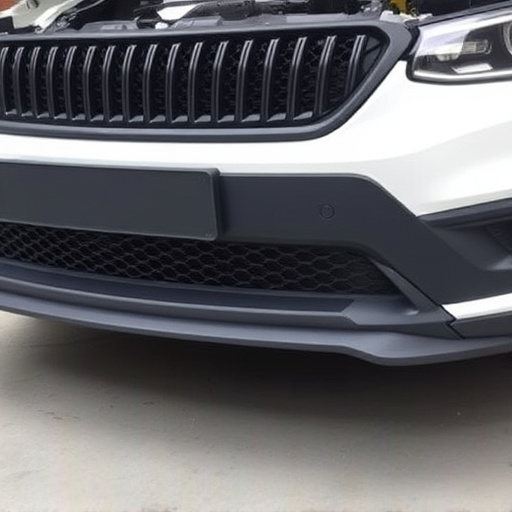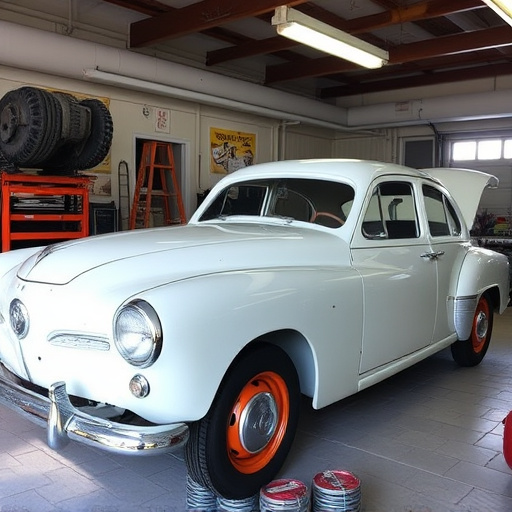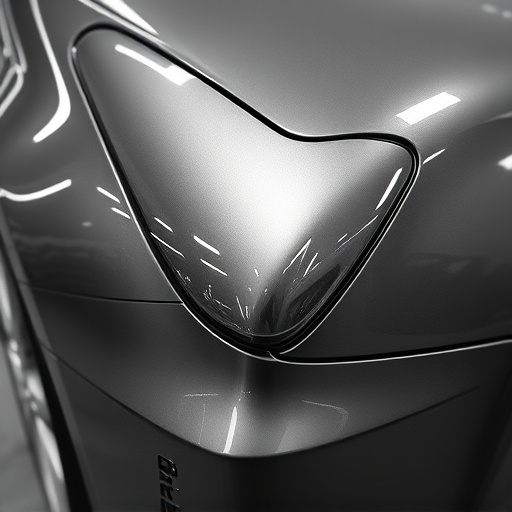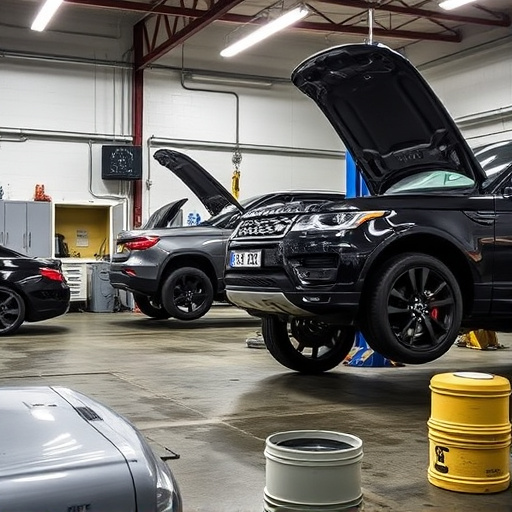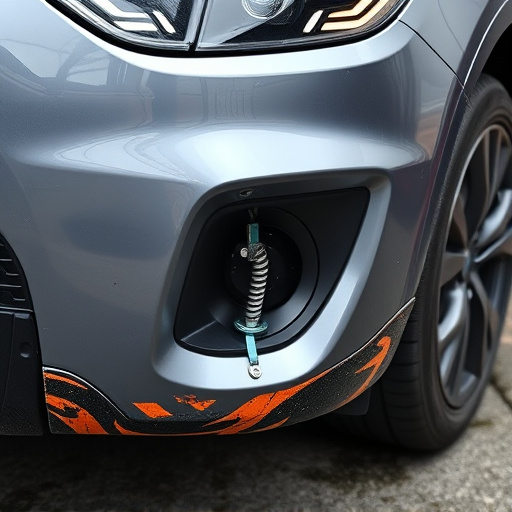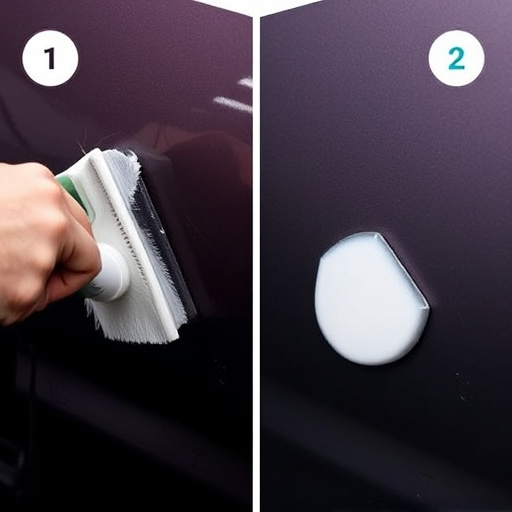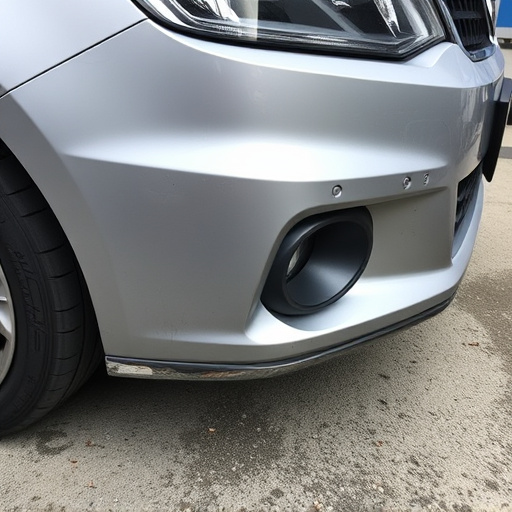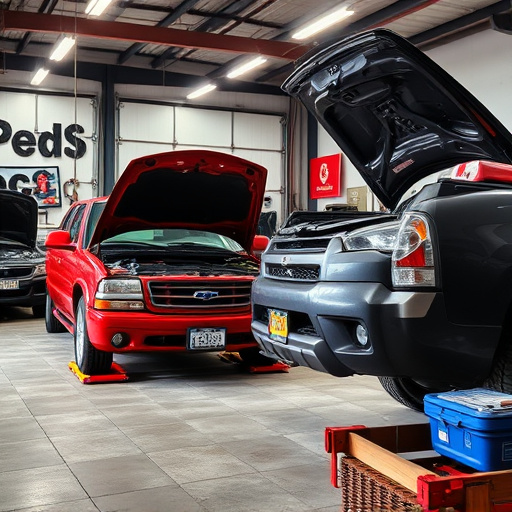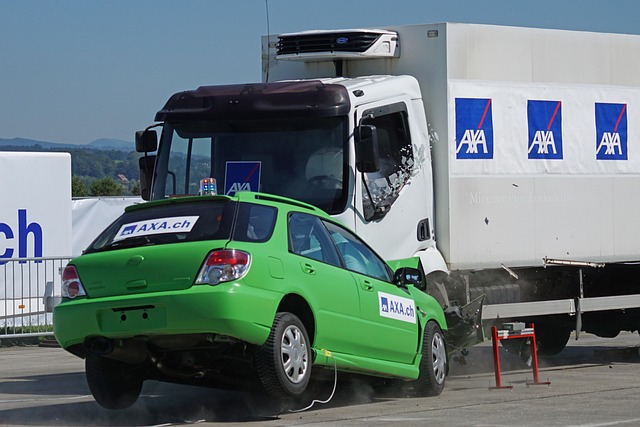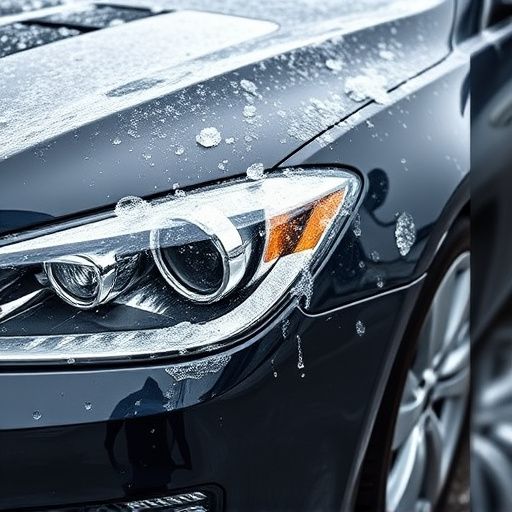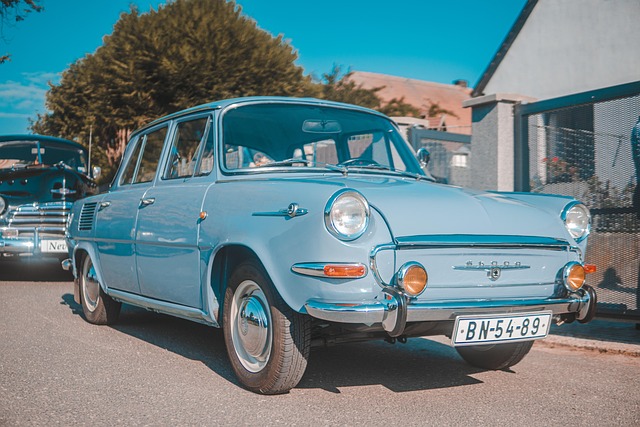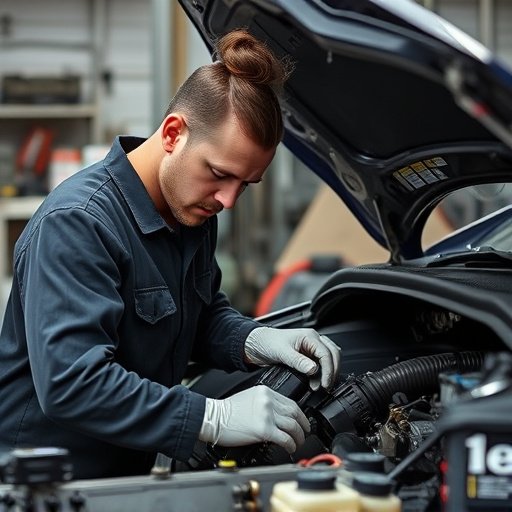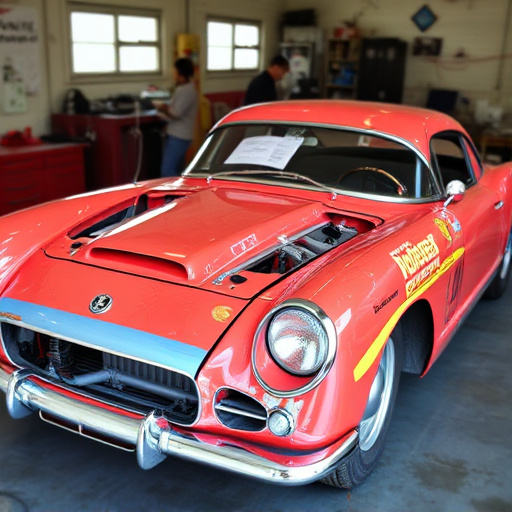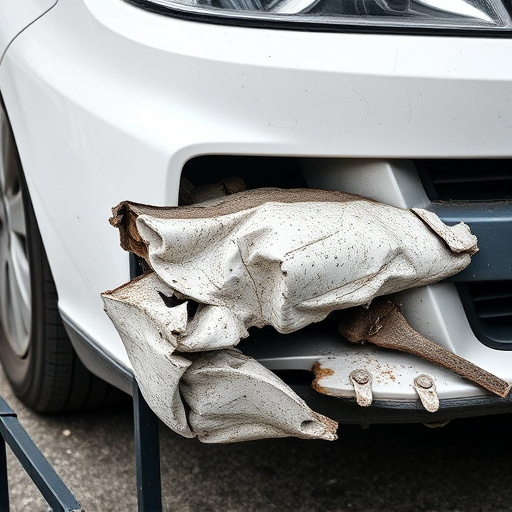After collision repairs, weatherproofing is crucial to protect vehicles from environmental damage, ensuring long-term structural integrity and visual appeal. Ideal timing for weatherproofing is post-repair, before adverse weather sets in, using high-quality automotive products. Strategic planning based on seasonal changes maximizes protection against UV rays, temperatures, precipitation, and contaminants, preserving repairs and preventing future damage.
After a car collision, proper repairs are crucial, but so is ensuring your vehicle is protected from the elements. Discover the optimal time to schedule weatherproofing after collision repairs. This article delves into the significance of weatherproofing, outlining the ideal timing and its numerous advantages. Learn about post-collision preparation, including benefits like enhanced protection against rust and improved long-term vehicle value, helping you make informed decisions for a secure and durable repair outcome.
- Understanding the Importance of Weatherproofing After Collision Repairs
- When is the Optimal Time to Schedule Weatherproofing?
- Benefits and Considerations for Post-Collision Weatherproofing
Understanding the Importance of Weatherproofing After Collision Repairs
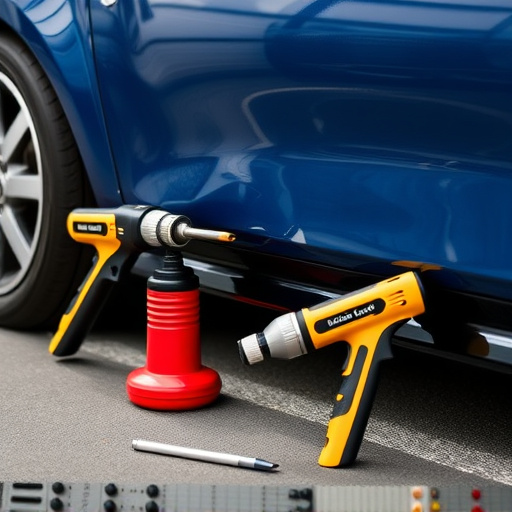
After collision repairs, weatherproofing is a crucial step that often gets overlooked. While fixing the physical damages caused by an accident is essential, protecting your vehicle from future elements-related issues is equally vital for long-lasting results. Weatherproofing not only prevents water intrusion and rust but also guards against UV rays, extreme temperatures, and other environmental factors that can compromise the integrity of freshly repaired parts.
Ignoring weatherproofing after collision repair could lead to costly relines or even more significant damage down the line. Car owners should view it as a crucial investment in their car’s longevity and appearance. Reputable car repair services understand this and often include weatherproofing as part of their comprehensive collision repair packages, ensuring that your vehicle is safe from the elements while enjoying the benefits of professional restoration.
When is the Optimal Time to Schedule Weatherproofing?
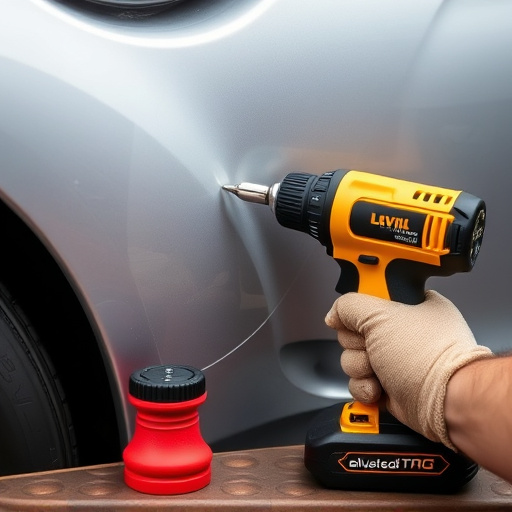
The optimal time to schedule weatherproofing after collision repairs is immediately following the completion of the auto body work. This ensures that any fresh paint or repairs are protected from potential weather damage, which can cause fading, peeling, or even further structural issues. Many auto repair shops offer comprehensive packages that include both collision repairs and subsequent weatherproofing to provide customers with a seamless and protective finish for their vehicles.
Considering the environmental impact of varying seasons, it’s strategic to plan for weatherproofing before the onset of extreme weather conditions. For instance, if you’ve had car scratch repair done during the spring or summer, schedule weatherproofing in preparation for the colder, wetter months ahead. Similarly, after collision repairs during late autumn, ensure your vehicle is protected against harsh winters to preserve its aesthetic value and structural integrity.
Benefits and Considerations for Post-Collision Weatherproofing
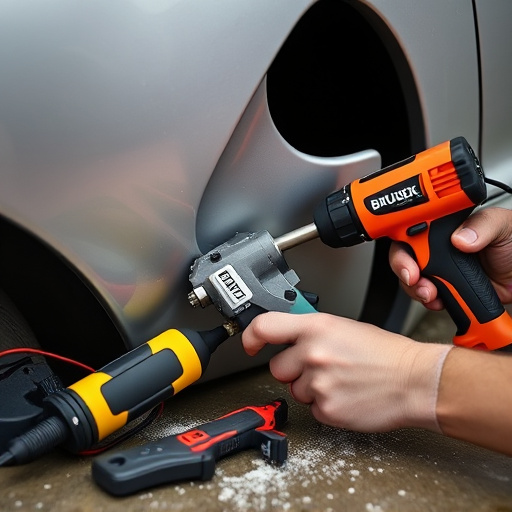
After collision repairs, considering weatherproofing is essential to protect your vehicle from potential damage and ensure a longer-lasting finish. The benefits are multifaceted; it shields the freshly repaired surface from harmful UV rays, extreme temperatures, and precipitation, preventing scratches, rust, and fading that could weaken the paint job. Moreover, weatherproofing acts as a protective layer against dirt, grime, and other environmental contaminants that may compromise the repair work.
There are several considerations to keep in mind when contemplating weatherproofing after collision repairs like car scratch repair, frame straightening, or vehicle dent repair. It’s ideal to perform this step before severe weather sets in, typically during spring or summer. Additionally, ensuring the repair area is clean and dry is crucial for optimal weatherproofing results. Choosing a high-quality weatherproofing product designed for automotive use will enhance protection and longevity of your vehicle’s new appearance.
After collision repairs, scheduling weatherproofing becomes essential to protect your vehicle’s fresh fix. Optimum timing is immediately post-repair, aiming for a dry, non-windy day. Weatherproofing not only safeguards against immediate environmental factors but also extends the lifespan of your vehicle’s new look and ensures long-lasting protection from future damage caused by harsh weather conditions.
